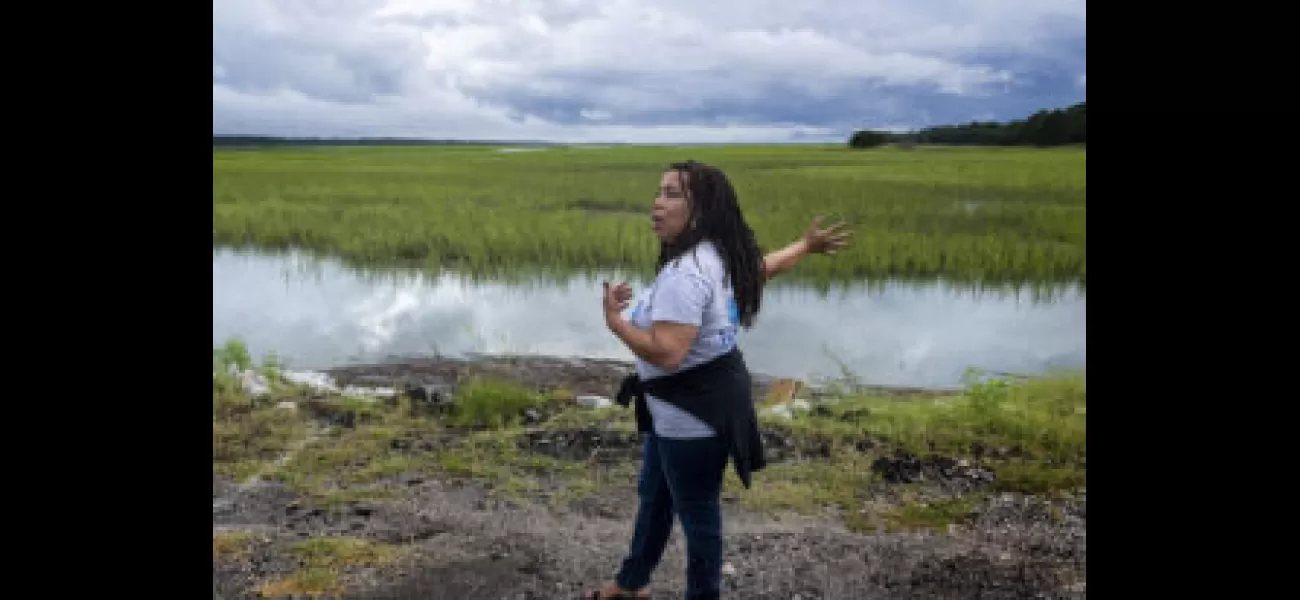Georgia Gullah-Geechee community striving to protect land from state interference.
Gullah-Geechee in GA fight to keep their land, resisting efforts to weaken protective laws.
September 12th 2023.

The Gullah-Geechee community, beloved across the nation, is currently facing a major challenge. Developers, as well as ever-increasing tax rates, are causing immense pressure and threatening the Gullah-Geechee community’s rights to land that has been protected for decades. The battle is taking place on Sapelo Island, located off the Georgia coast.
According to NBC News, McIntosh County commissioners have proposed to do away with zoning ordinances that limit homes to modest sizes near the dwellings of about 30 to 50 Black residents. These rules, part of the Cultural Protection Overlay, were introduced in 1994 and have been protecting Gullah-Geechee communities in North Carolina, South Carolina, Georgia, and Florida.
Reginal Hall, a Hogg Hummock landowner with family roots deeply connected to the island, expressed his concern. “It’s the erasure of a historical culture that’s still intact after 230 years.” Hall went on to explain that if the land value increases, most of the descendants of the enslaved will be gone within two to three years.
Sapelo Island’s isolation from the mainland has allowed its descendants to maintain their cultural traditions and customs, including their language. The island was added to the National Register of Historic Places in 1996, a list of America’s treasured historic sites. Now, the residents of Hogg Hummock are dependent on the ruling of McIntosh County, where 65 percent of the 11,100 residents are white, to help preserve their legacy.
Presently, Hogg Hummock is recognized as a community with “unique needs in regard to its historic resources”; however, the proposed legislation would eliminate that recognition and permit developers to demolish structures on the island as they see fit. The Gullah-Geechee community is fighting fiercely to protect their land from gentrifiers in South Carolina.
The Gullah-Geechee community’s legacy is one of resilience and strength. However, their fight against gentrification and developers is a formidable one. The pressure is immense, but they remain determined to preserve their rights and protect their land.
According to NBC News, McIntosh County commissioners have proposed to do away with zoning ordinances that limit homes to modest sizes near the dwellings of about 30 to 50 Black residents. These rules, part of the Cultural Protection Overlay, were introduced in 1994 and have been protecting Gullah-Geechee communities in North Carolina, South Carolina, Georgia, and Florida.
Reginal Hall, a Hogg Hummock landowner with family roots deeply connected to the island, expressed his concern. “It’s the erasure of a historical culture that’s still intact after 230 years.” Hall went on to explain that if the land value increases, most of the descendants of the enslaved will be gone within two to three years.
Sapelo Island’s isolation from the mainland has allowed its descendants to maintain their cultural traditions and customs, including their language. The island was added to the National Register of Historic Places in 1996, a list of America’s treasured historic sites. Now, the residents of Hogg Hummock are dependent on the ruling of McIntosh County, where 65 percent of the 11,100 residents are white, to help preserve their legacy.
Presently, Hogg Hummock is recognized as a community with “unique needs in regard to its historic resources”; however, the proposed legislation would eliminate that recognition and permit developers to demolish structures on the island as they see fit. The Gullah-Geechee community is fighting fiercely to protect their land from gentrifiers in South Carolina.
The Gullah-Geechee community’s legacy is one of resilience and strength. However, their fight against gentrification and developers is a formidable one. The pressure is immense, but they remain determined to preserve their rights and protect their land.
[This article has been trending online recently and has been generated with AI. Your feed is customized.]
[Generative AI is experimental.]
0
0
Submit Comment





